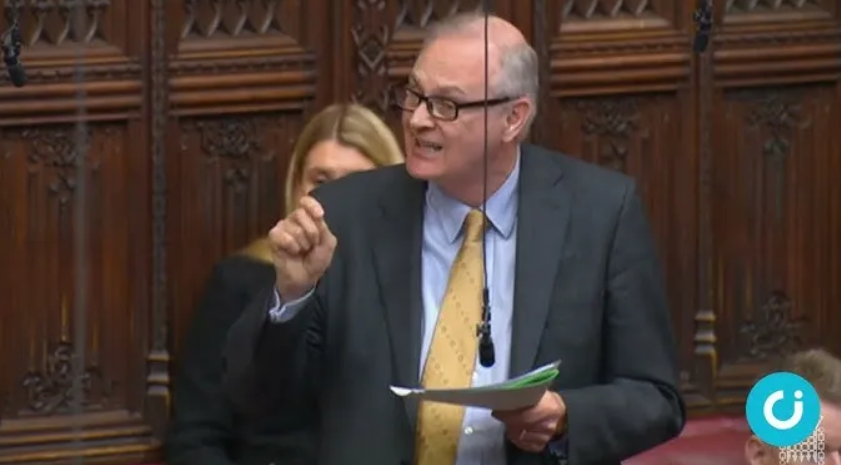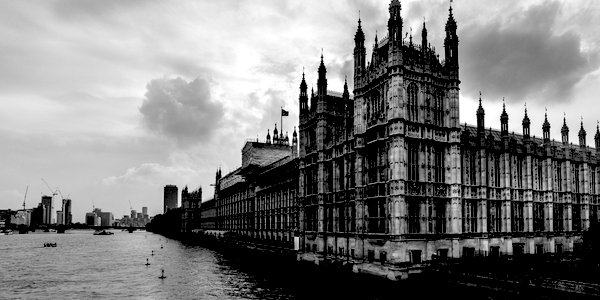
MONDAY’S committee stage of the Children’s Wellbeing and Schools Bill offered a textbook lesson in how the House of Lords can still separate rhetoric from reality.
At issue was Amendment 67, another attempt to criminalise every parental smack by scrapping the long-standing defence of ‘reasonable chastisement’.
The scene
A procession of Liberal Democrat and Crossbench peers deployed harrowing child-murder cases, 19th-century court judgments and arm-waving references to Sweden to insist that unless Westminster bans a light tap on the hand, Britain is condoning brutality.
Their speeches were drenched in anecdote, emotion and worst-case hypotheticals.
Then Lord Jackson of Peterborough rose. In five crisp minutes he demolished the proposal as: ‘An egregious interference in family life . . . disproportionate and heavy-handed’ and a move that would ‘criminalise good and caring parents . . . overload children’s services . . . and distract social workers from genuine abuse.’
No theatrics, no scare-stories – just facts, calmly delivered. Here is the record in Hansard.
Why Jackson is right
- The current law already bans violence.
Since parliament narrowed the defence in 2004, anything beyond a fleeting reddening of the skin is prosecutable. Baroness Barran, speaking from the Government Front Bench, spelled it out: the defence cannot be used where injury is ‘more than transient or trifling.’ Baroness Smith repeated the point. The proposal therefore outlaws what is already illegal; the only novelty is to drag mild, momentary discipline into the criminal courts.
- Resources are finite.
Social-care departments are buckling. Jackson’s warning is stark but accurate: flood the system with thousands of petty complaints and vulnerable children slip further down the queue. Activists talk as if staffing is infinite; practitioners know otherwise. - Evidence, not ideology.
Pro-ban peers cite ‘studies’ that fail to distinguish between beating and a corrective tap. Meanwhile, Swedish data – ignored by campaigners – show a 1,791 per cent rise in child-on-child violence between 1984 and 2010 after its ban. Correlation is not causation, but grand claims that prohibition reduces violence are plainly overstated.
- Proportionality matters in criminal law.
Confiscating a phone is not theft; sending a recalcitrant teenager to their room is not false imprisonment. Likewise, a controlled smack is not battery. Jackson’s central insight is legal proportion – a concept his opponents skip past in their rush to outlaw.
The support he drew
Baroness Barran (Conservative): confirmed that present CPS guidelines already protect children from harm and questioned whether a fresh ban would tackle the real modern threat—non-physical coercive abuse.
Baroness Smith of Malvern (Labour front bench): underlined that serious injuries cited by amendment-supporters would never fall under reasonable chastisement. She urged evidence-gathering from Wales and Scotland before England rewrites criminal law.
When peers from opposing parties back your legal reading, you are on solid ground.
The flaws in the counter-case
‘All violence starts with a single hit; ban the first hit.’
True of murder, false of discipline. Most parents who once or twice smack a toddler never escalate – conflating them with killers is moral grand-standing.
‘Parents won’t be criminalised; this is symbolic.’
The CPS cannot treat a new offence as mere symbolism – police must investigate, files must be opened, parents risk arrest.
‘Public opinion supports a ban.’
Every credible poll still shows a majority against criminalisation. Even critics concede most adults were smacked as children and do not label their parents abusers.
‘Other countries have done it.’
Many also legalised cannabis and abolished jury trials in family courts. Policy is not copy-and-paste – outcomes matter.
Ideology over evidence
The debate exposed a widening gulf:
- Activist peers – trading in catastrophic anecdotes, scorning nuance, eager to brand normal families ‘morally repugnant’.
- Common sense peers – asking whether a new criminal category will help children or simply manufacture offenders and clog the very system meant to protect kids at risk.
Jackson, Barran and Smith anchored their case in statutory text, CPS charging standards, departmental guidance and the practical limits of child-protection budgets. Their opponents pivoted to feelings, slogans and selective science.
Why this matters beyond one clause
Legislation is increasingly driven by ideological tribes who weaponise child-protection rhetoric to push sweeping state powers.
Measures such as smacking bans and compulsory registers come wrapped in the language of ‘safeguarding,’ yet they erode parental autonomy while sidestepping the real crises: family breakdown, addiction, poverty, and the grave failings of many mainstream schools, where bullying, classroom violence, chronic absenteeism, and collapsing academic standards are left to fester.
Lord Jackson’s intervention is a line in the sand: law must remain tethered to proportion, evidence and liberty. Peers who scorn those anchors may mean well, but good intentions are no defence against bad law.
The take-away
When the dust settled, two facts survived the rhetorical fog:
- Current legislation already provides statutory safeguards that protect children from physical harm.
- Banning reasonable chastisement would criminalise ordinary mums and dads while squandering scarce frontline resources.
That is why Lord Jackson’s stance, seconded by Baroness Barran and endorsed in substance by Baroness Smith, deserves applause.
It is law-making with its feet on the ground, its head clear of ideological clouds and its heart focused on real child safety.
In a chamber too often swayed by fashionable theories, common sense spoke – and it spoke with courage.
*Stewart Jackson, Baron Jackson of Peterborough, was Conservative MP for Peterborough from 2005 to 2017. His wife is Daily Express journalist Sarah O’Grady.
This article appeared in Rabbi’s Substack on June 10, 2025, and is republished by kind permission.











